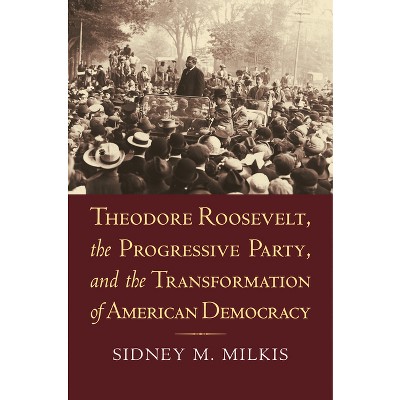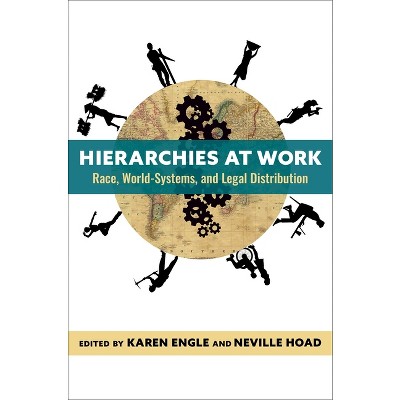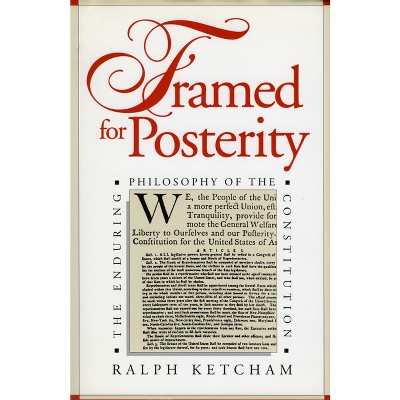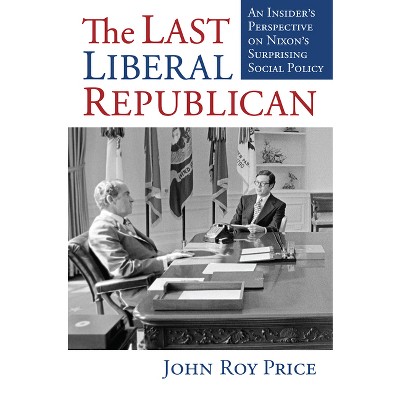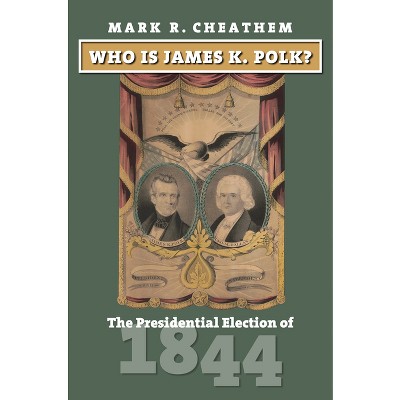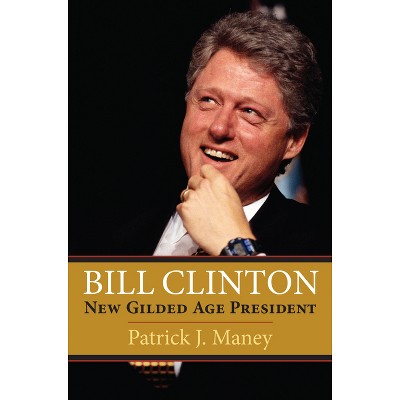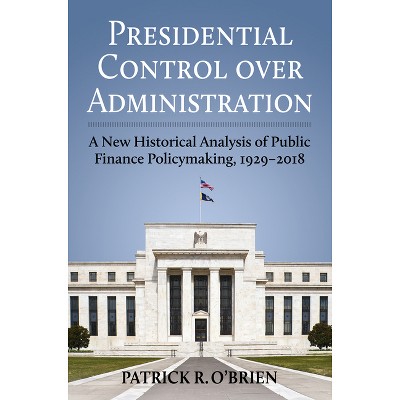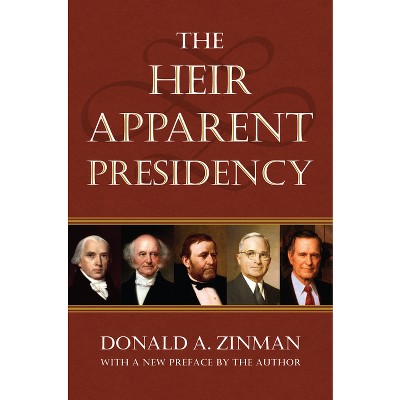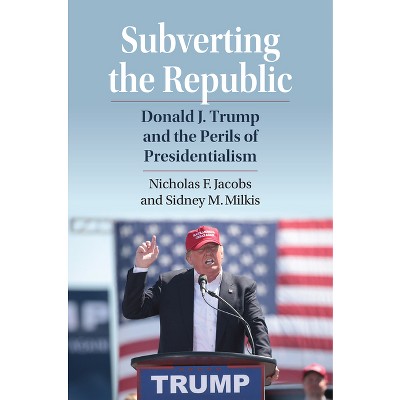Sponsored

Something to Fear - by Ira Chernus & Randall P Fowler (Hardcover)
In Stock
Sponsored
About this item
Highlights
- A presidency unlike any other, Franklin D. Roosevelt's legacy in foreign affairs has been contested since the day of his passing.
- Author(s): Ira Chernus & Randall P Fowler
- 344 Pages
- Political Science, American Government
Description
About the Book
"A president unlike any other, Franklin D. Roosevelt's legacy in foreign affairs has been contested since the second he left office. Although few scholars assert that FDR's actions directly led to the Cold War, many note that his presidency bears an ambiguous relationship to the superpower rivalry that followed him. In Something to Fear, the authors show that Roosevelt's rhetoric, vision, and policies promoted a broadly defined sense of American security over a 33-year time span, ultimately helping elevate security to a primary value in U.S. political discourse by the end of his presidency. In doing so, however, they argue that he also heightened the prominence of insecurity in American public life, mediating the United States' transition to superpower status in a way that also elevated fear in debates over foreign affairs. To demonstrate these contrarian claims, they examine a series of thematic snapshots encompassing FDR's entire political career. They capture the progression of his security rhetoric from his first campaign for New York State Senator to his defeat of the anti-interventionist movement and instantiation of a new way of talking about the United States' role in the world during World War II. Roosevelt's presidency precipitated a complex shift in U.S. foreign policy that defies any straightforward account organized along a linear isolationist-to-interventionist trajectory. This study investigates the uncertainties and contradictions embedded in FDR's presidential rhetoric, which drew from realist, racial, progressive, nostalgic, apocalyptic, liberal internationalist, and American exceptionalist discourses with little consideration for the possible inconsistencies this paradoxical brew might contain. In this way, Roosevelt's rhetoric anticipated the ambivalences contained in American adventures abroad ever since"--Book Synopsis
A presidency unlike any other, Franklin D. Roosevelt's legacy in foreign affairs has been contested since the day of his passing. Few presidential statements have echoed through history like FDR's charge to conquer "fear itself." Yet immediately after the end of World War II, the United States was gripped by a pervasive sense of national insecurity.
In Something to Fear, Ira Chernus and Randall Fowler demonstrate that Roosevelt's rhetoric, vision, and policies promoted a broadly defined sense of American security over a period of thirty-three years, ultimately helping elevate security to its primacy in US political discourse by the end of his presidency. In doing so, however, he also heightened the prominence of insecurity in American public life, mediating the United States' transition to superpower status in a way that also elevated fear in debates over foreign affairs.
FDR's presidency precipitated a complex shift in US foreign policy that defies any straightforward account organized along a linear isolationist-to-interventionist trajectory. Chernus and Fowler investigate the uncertainties and contradictions embedded in FDR's presidential rhetoric, which drew from realist, racial, progressive, nostalgic, apocalyptic, liberal internationalist, and American exceptionalist discourses. In this way, Roosevelt's rhetoric anticipated the ambivalences contained in American adventures abroad ever since.
Something to Fear shows how FDR's response to the Great Depression, the debates over intervention, and World War II left an immense rhetorical legacy that often stressed insecurity. This study of FDR's entire political career also carefully links him to the Progressive Era before his presidency and to the Cold War era after it.
Review Quotes
"This pathbreaking book examines the origins of Franklin Roosevelt's worldview and his deft use of 'security-laden' rhetoric to sway the American people. Roosevelt's focus on eliminating 'fear' and 'insecurity' became the cornerstone of American foreign policy, shaping the thinking of his successors for well over eighty years. Ira Chernus and Randall Fowler have written an impressive study of breathtaking scope, challenging much of the conventional wisdom surrounding both FDR and the main tenets of the nation's foreign policy. This is scholarship as it should be--a must-read for all students of presidential rhetoric and of national security policymaking."--Stephen Knott, author of Coming to Terms with John F. Kennedy and Lost Soul of the American Presidency: The Decline into Demagoguery and the Prospects for Renewal
"This impressive book explores an important subject--the development, evolution, societal impact, and legacy of Franklin D. Roosevelt's presidential rhetoric--in a highly original, nuanced, and imaginative fashion. A tour de force of rhetorical and historical exposition and analysis, Something to Fear speaks powerfully to ongoing scholarly and public debates about the prevalence of preoccupations with security and fear in US political and foreign policy discourse, from World War II and the Cold War to the war on terror and the age of Trump."--Robert J. McMahon, author of The Limits of Empire: The United States and Southeast Asia since World War II and The Cold War on the Periphery: The United States, India, and Pakistan
Shipping details
Return details
Frequently bought together

Trending Non-Fiction






